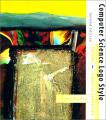
CS for All
by Christine Alvarado, et al.
Publisher: Harvey Mudd College 2013
Number of pages: 311
Description:
Our objective is to provide an introduction to computer science as an intellectually rich and vibrant field rather than focusing exclusively on computer programming. While programming is certainly an important and pervasive element of our approach, we emphasize concepts and problem-solving over syntax and programming language features.
Download or read it online for free here:
Read online
(online html)
Similar books
 Foundations of Computer Science
Foundations of Computer Scienceby Hans-Peter Bischof
This text is an introduction to the formal study of computation. The course will provide students with a broad perspective of computer science and will acquaint them with various formal systems on which modern computer science is based.
(13330 views)
 Advances in Knowledge Representation
Advances in Knowledge Representationby Carlos Ramírez Gutiérrez - InTech
A compilation of research works on topics such as concept theory, positive relational algebra and k-relations, structured, visual and ontological models of knowledge representation, and detailed descriptions of applications to various domains.
(11268 views)
 Foundations of Computer Science
Foundations of Computer Scienceby Lawrence C Paulson - University of Cambridge
This text teaches programming and presents some fundamental principles of computer science, especially algorithm design. The programming in this course is based on the language ML and mostly concerns the functional programming style.
(23293 views)
 Computer Science Logo Style
Computer Science Logo Styleby Brian Harvey - The MIT Press
This series is for people who are interested in computer programming because it's fun. The three volumes use the Logo as the vehicle for an exploration of computer science from the perspective of symbolic computation and artificial intelligence.
(20301 views)